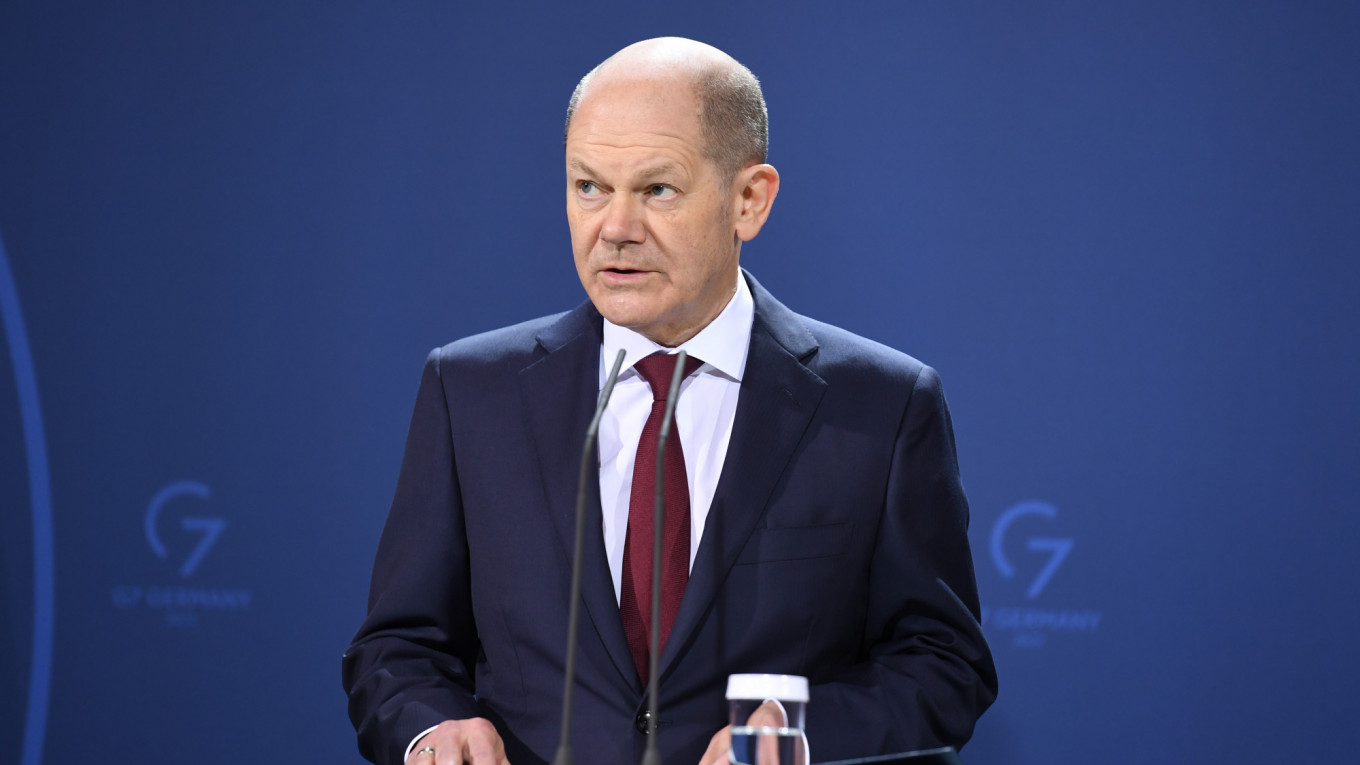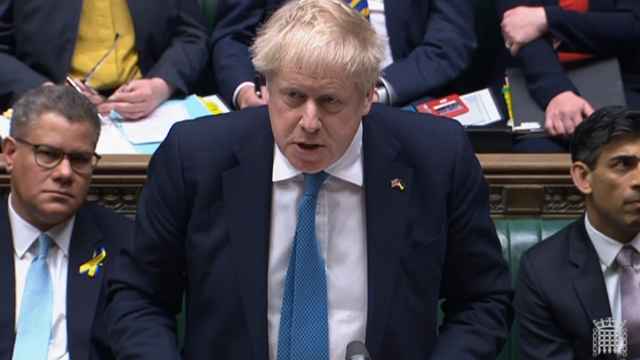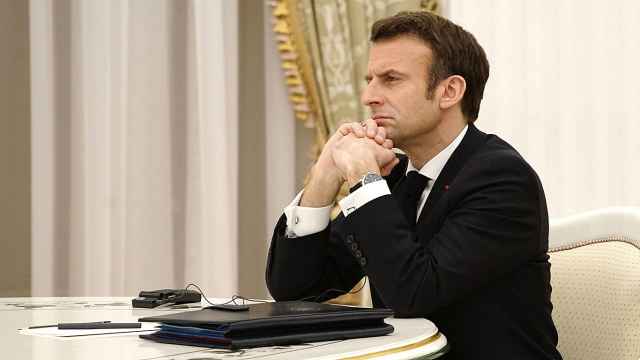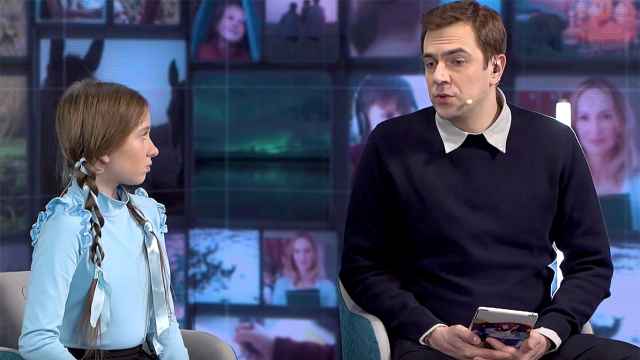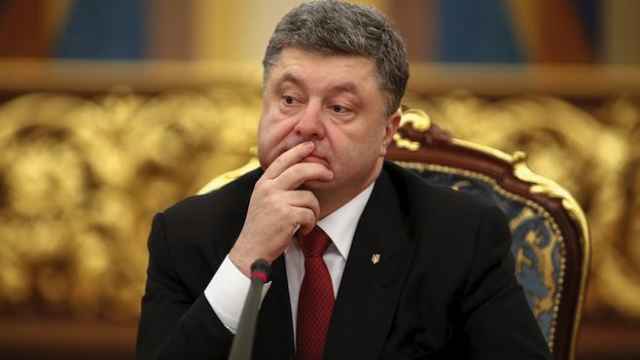Western leaders on Friday vowed to take "swift and deep sanctions" against Moscow should Russia march on Ukraine, Berlin said after talks, as Washington warned that a Russian invasion could be just days away.
U.S. President Joe Biden joined six leaders, the heads of NATO and the European Union in crucial talks in a bid to defuse the worst crisis between the West and Russia since the end of the Cold War.
"All diplomatic efforts are aimed at persuading Moscow to de-escalate. The aim is to prevent a war in Europe," German Chancellor Olaf Scholz's spokesman tweeted following the phone call.
But if Moscow failed to pull back, Berlin said "the allies are determined to jointly take swift and deep sanctions against Russia, should there be further violations of Ukraine's territorial integrity and sovereignty."
These sanctions would target the financial and energy sectors, EU chief Ursula von der Leyen said.
At the talks, "she reaffirmed the fact that all options were on the table and that sanctions would concern the financial and energy sectors, as well as exports of high-tech products," the European Commission said in a statement, quoting von der Leyen.
Several rounds of diplomacy have failed to ease tensions on Europe's doorstep.
NATO Secretary General Jens Stoltenberg on Friday warned anew of the "real risk for a new armed conflict in Europe", while US Secretary of State Antony Blinken said a Russian invasion could come "any time."
Russia is operationally ready to conduct a wide range of military operations in Ukraine and the Kremlin just needs to make the call, the head of Norway's military intelligence service said.
Putting it bluntly in the call with Western leaders, British Prime Minister Boris Johnson told them "he feared for the security of Europe", his Downing Street office said.
Britain and Norway on Friday joined the United States in asking their nationals to leave Ukraine.
NATO allies have for months raised the alarm over a possible invasion of Ukraine as tens of thousands of Russian troops mass along the border.
Russia has denied any plan to invade.
It says it is seeking written guarantees from NATO that the alliance will withdraw its presence from eastern Europe and never expand into Ukraine.
The United States and its European allies have rejected those demands.
Fresh military drills
Fuelling concerns, Russia is holding large-scale military drills with ally Belarus, which borders Ukraine and the European Union.
Moscow and Minsk have not disclosed how many troops are participating, but the United States has said around 30,000 soldiers were being dispatched to Belarus from locations including Russia's Far East.
In addition, Russia's defence ministry said Friday it will also hold fresh military exercises near Ukraine's border and in the Black Sea.
Moscow, which controls the Crimea peninsula after annexing it from Ukraine in 2014, has made the Black Sea a strategic priority.
Macron shuttled between Moscow and Kyiv earlier this week in the search for a diplomatic solution, and Scholz is expected to do the same in the coming days.
Scholz will also hold his first in-person meeting with Russian President Vladimir Putin in Moscow.
British Defence Secretary Ben Wallace was in Moscow Friday for rare talks with his Russian counterpart Sergei Shoigu.
He was accompanied by the U.K.'s Chief of Defence Staff Tony Radakin, and the pair will also meet Russia's top army general Valery Gerasimov.
Wallace's visit comes a day after Britain's Foreign Secretary Liz Truss met with her Russian counterpart Sergei Lavrov in Moscow for talks that appeared fruitless and ended in mutual recriminations.
'Difficult' talks
Disappointment ensued after a meeting between Russian and Ukrainian negotiators, under the mediation of Germany and France.
Sources described the meeting as "difficult" and said it lasted for more than nine hours.
After the talks, the Kremlin once again accused Ukraine of not adhering to the 2015 Minsk agreements between Kyiv and Moscow on the separatist conflict in the east of the country.
Kyiv's negotiator Andriy Yermak, however, told a late-night briefing after that "everyone is determined to reach a result."
The four-way "Normandy" format was launched in 2014 in a bid to end fighting between Ukraine and Russia-backed separatists that has claimed more than 14,000 lives.
According to Germany, the next Normandy talks will take place in March.
On the other side of the Atlantic, Biden issued a stark warning to his citizens, urging them to leave Ukraine as soon as possible.
"American citizens should leave, should leave now," Biden told NBC News. "We're dealing with one of the largest armies in the world."
He added that "things could go crazy quickly."
But Ukraine, which has frequently downplayed warnings from Washington, dismissed the order as "nothing new."
Washington has warned Moscow of unprecedented sanctions if its tanks roll into Ukraine, in particular promising an end to the controversial new Nord Stream 2 gas pipeline from Russia to Europe.
The United States has also announced the deployment of several thousand troops to bolster NATO forces in eastern Europe.
A Message from The Moscow Times:
Dear readers,
We are facing unprecedented challenges. Russia's Prosecutor General's Office has designated The Moscow Times as an "undesirable" organization, criminalizing our work and putting our staff at risk of prosecution. This follows our earlier unjust labeling as a "foreign agent."
These actions are direct attempts to silence independent journalism in Russia. The authorities claim our work "discredits the decisions of the Russian leadership." We see things differently: we strive to provide accurate, unbiased reporting on Russia.
We, the journalists of The Moscow Times, refuse to be silenced. But to continue our work, we need your help.
Your support, no matter how small, makes a world of difference. If you can, please support us monthly starting from just $2. It's quick to set up, and every contribution makes a significant impact.
By supporting The Moscow Times, you're defending open, independent journalism in the face of repression. Thank you for standing with us.
Remind me later.


